
Office address: 50 Hudson Yards New York, NY 10001
Website: www.blackrock.com
Year established: 1988
Company type: investment company
Employees: 19,800+
Expertise: asset management, risk management, ETFs (iShares), fixed income, alternative investments, wealth management, retirement solutions, private equity, infrastructure, real estate, sustainable investing, financial technology
Parent company: N/A
Key people: Larry Fink (CEO), Rob Kapito (president), Joud Abdel Majeid (global head), Stephen Cohen (CPO), Ed Fishwick (CRO), Rob Goldstein (COO), Martin Small (CFO), Chris Meade (CLO)
Financing status: N/A
BlackRock is a global investment company from New York, offering asset management, advisory, and risk management services. The firm manages $11.5 trillion in assets as of October 2024 and operates in over 38 countries. With over 19,800 employees, the company serves clients in more than 100 countries, helping them achieve long-term financial well-being through innovative financial solutions.
BlackRock was founded in 1988 by Laurence Fink and seven partners, driven by a desire to manage assets with a focus on risk management and client interests. The company quickly grew, and in 1999, it launched Aladdin, its proprietary technology that transformed the risk management industry. During the 2008 financial crisis, the company was tapped by the Federal Reserve to assess Bear Stearns' assets, playing a crucial advisory role.
In 2009, it acquired Barclays Global Investors, becoming the world's largest asset manager and integrating both active and index strategies. In 2017, the company deepened its focus on investment stewardship, emphasizing the long-term value of purpose in profitability. By 2024, it partnered with Vestmark to boost model portfolios, further expanding its offerings for registered investment advisors.
BlackRock offers a wide range of investment products and services designed to meet the diverse needs of its clients. Below are the some of their key offerings:
BlackRock’s global team provides insights on markets, economies, and long-term strategies, helping clients navigate the complexities of investing. Whether it is a professional or a new investor, their services aim to support financial success while also empowering employees and giving back to communities.
BlackRock’s culture is built on a commitment to its clients, employees, and core principles. The company focuses on employee growth, offering benefits that support physical, emotional, and financial well-being. The firm provides various resources and benefits to keep employees engaged and balanced, some of which include:
The firm’s commitment to diversity, equity, and inclusion (DEI) is central to its success, fostering an environment where employees feel a sense of belonging. The company’s global platform thrives by incorporating diverse perspectives to deliver the best outcomes for clients. By embracing unique skills and experiences, they empower employees to collaborate effectively and contribute to a shared mission:
The company’s social impact focuses on making financial prosperity accessible to more people and communities. The BlackRock Foundation supports low- to moderate-income households by helping them save, invest, and build wealth. Initiatives include:
BlackRock’s approach to corporate sustainability focuses on long-term value for shareholders, employees, communities, and clients. The company is committed to transparency, providing stakeholders with meaningful sustainability-related information.
Laurence Fink is company’s chairman, CEO, and founder, also serving on the boards of NYU and the World Economic Forum. Before founding BlackRock in 1988, he was a managing director at The First Boston Corporation. Fink earned a BA in political science and an MBA in real estate from UCLA.
The company’s key leadership team includes notable figures who lead the firm’s operations across global markets:
To prepare for potential market volatility, BlackRock advises financial professionals to reduce risk and shift toward safer investment options. With uncertainty ahead, particularly due to macroeconomic concerns and the upcoming elections, the firm highlights the importance of defensive strategies like the BlackRock Flexible Income ETF (BINC). This strategic adjustment also reflects their broader move toward active management, signaling its belief in a more hands-on approach during turbulent times.
The company recently reached an $11.5 trillion milestone in assets under management by the third quarter of 2024. This growth was driven by strong client inflows, notably into ETFs, fixed income, and private assets. BlackRock is accelerating its push into private assets, following acquisitions like Global Infrastructure Partners, and continues to lead in both public and private markets.
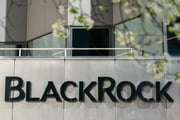
Investors should bet on credit instead, because valuations have improved and default risk is contained, according to BlackRock strategists.

The nine ETFs, which have tracked EU-regulated climate transition benchmarks since October, attracted a net $2.7 billion this year as of mid-June.

Technology platforms evolve quickly to give financial advisers tools to help clients mitigate the tax hit as financial markets decline.

This month’s #AdviserTech roundup looks at Tifin’s latest founding round, Snappy Kraken’s acquisition of Advisor Websites and Lumiant’s new solution for engaging the less-engaged spouse.

Virginians without access to a workplace retirement savings plan will now be able to save a portion of their pay in a professionally managed IRA.
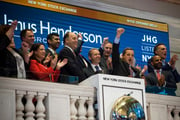
The 'merger of equals’ was meant to boost both fund managers but the firm has struggled since, losing AUM, executives and value.

The sell-off sent the S&P 500 down 4%, while the Nasdaq 100 dropped more than 5% as growth-related tech stocks sank.

As companies commit to net-zero or emissions-reduction targets, one concern is whether their investment in reducing emissions will come at the expense of money spent on competing in the marketplace.

The sell-off so far this year is creating opportunities for investors, two top investment managers said Monday at the Morningstar Investment Conference.
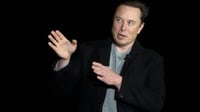
Conversation on Twitter criticized passive investing and weighed in on a long-running Wall Street debate about the growing power of index funds.
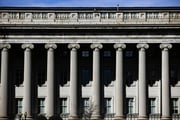
Chair Jerome Powell pours cold water on the prospect for a jumbo-sized 75 basis point rate hike next month.

The asset manager says the new consumer, an industrial renaissance and medical innovation are areas where changes have exposed 'underestimated investment opportunities.'
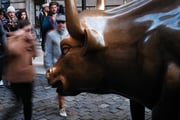
Earlier resistance could impede Wall Street’s latest efforts to stay competitive, just as regulatory uncertainty and internal compliance cloud expansion plans.

A report shows that in the US, total money in climate mutual funds and ETFs hit $31 billion at the end of 2021.

A proposal from a group that supports conservative initiatives targets ESG in state pension plans.
